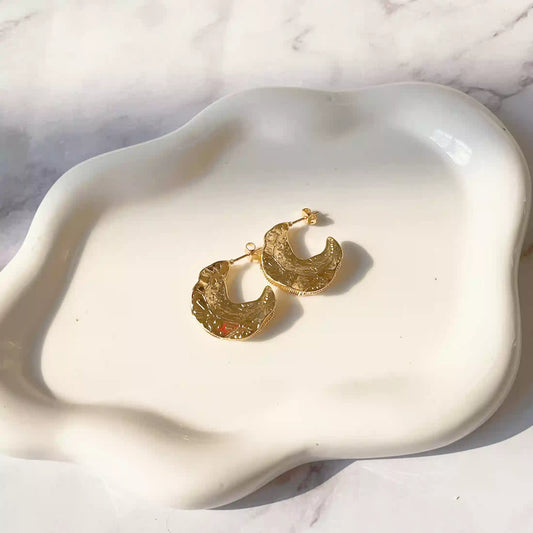"How to choosing jewelry?" One of the questions we receive the most from our customers. It depends on personal preferences, usage habits, and potential allergic reactions. Here are some features of "S925 Sterling Silver, Titanium Steel, Copper"
S925 Sterling Silver:
- Advantages: Pure silver has an elegant appearance, is skin-friendly, and typically does not cause allergies. S925 indicates it is a 92.5% pure silver alloy, with the rest usually being copper. This provides sufficient hardness, making the jewelry more durable. Unephemeral's earrings are all made using S925 silver needles.
- Considerations: Silver jewelry may oxidize over time, forming a patina that darkens its appearance. Regular cleaning and maintenance can help maintain its shine.
Titanium Steel:
- Advantages: Titanium steel boasts superior corrosion resistance and scratch resistance, making it robust and durable. It also usually does not easily cause allergies.
- Considerations: However, the downside of titanium steel is its lower luster and less brilliance in appearance. Some individuals may find it lacks a certain texture. Titanium steel might be more challenging to repair due to its hardness. Nevertheless, its durability can be seen as an advantage.
Copper:
- Advantages: Copper is malleable and can be crafted into various styles of jewelry, making it a common material for necklaces. It is generally more budget-friendly.
- Considerations: Copper may cause skin sensitivity, especially for individuals sensitive to metals. Additionally, copper may oxidize over time, leaving traces on the skin, requiring regular cleaning and maintenance. However, Unephemeral's gold-plated jewelry addresses this drawback of copper.










